Trump ‘wants British and European troops sent to enforce 800-mile buffer zone between Russia and Ukraine’ as part of his peace plan – as he prepares to speak to Putin
Donald Trump could call for an 800-mile demilitarized zone between Russia and Ukraine as part of a plan to end the war early.
The proposal, outlined by three Trump aides, would see the zone controlled by British and European forces.
It would mean that Russia would maintain its territorial gains in Ukraine while the current border would remain frozen. Kiev should also ensure that it will not join NATO for the next twenty years.
Under the plans, which are one of several being considered, the US would arm Ukraine in exchange for preventing Russia from resuming the war.
However, the responsibility for staffing and financing the buffer zone would lie solely with Ukraine’s European allies.
It comes as Ukrainian leader Volodymyr Zelensky warned that any attempt to end the war by appeasing Russia would be “suicide” for Europe.
Donald Trump made an astonishing political comeback and regained the White House with a dominant victory in the 2024 US presidential election
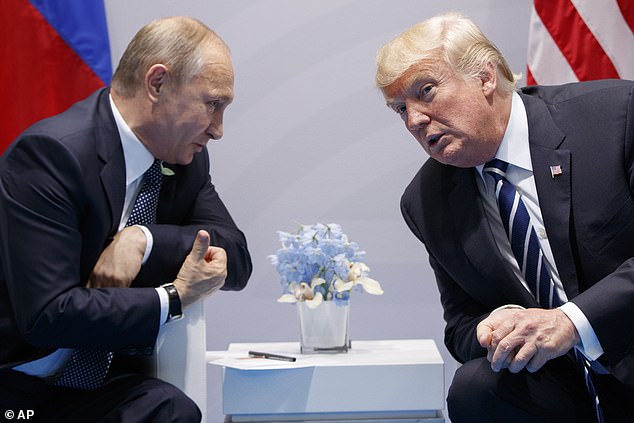
President Donald Trump meets with Russian President Vladimir Putin at the G-20 summit in Hamburg, July 7, 2017
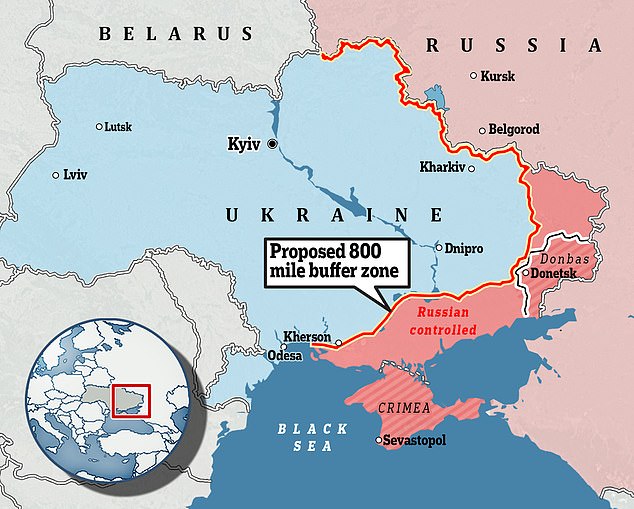
Map shows what the proposed 800-mile buffer zone could look like
“We can provide training and other support, but the barrel of the gun will be European,” a member of Trump’s team told the Wall Street Journal.
“We are not sending American men and women to maintain peace in Ukraine. And we don’t pay for it. Let the Poles, Germans, British and French do it.’
While Trump has not outlined how he would bring both sides to the negotiating table, his advisers have reportedly expressed several plans to resolve the conflict.
Top Russian official Sergei Shoigu said on Thursday that the situation in the combat zone in Ukraine is not in Kiev’s favor and that the West must accept this and negotiate an end to the conflict, Interfax news agency reported.
“Now that the situation in the field of military operations is not in favor of the Kiev regime, the West is faced with a choice: continue to finance them and destroy the Ukrainian population, or recognize the current reality and start with negotiations’ Shoigu was cited as a witness at a meeting of secretaries of the security councils of the countries of the Commonwealth of Independent States in Moscow.
Trump famously said that the war between Russia and Ukraine would never have started if he had been president, claiming he could bring the conflict to an abrupt halt – without ever announcing his plans to do so.
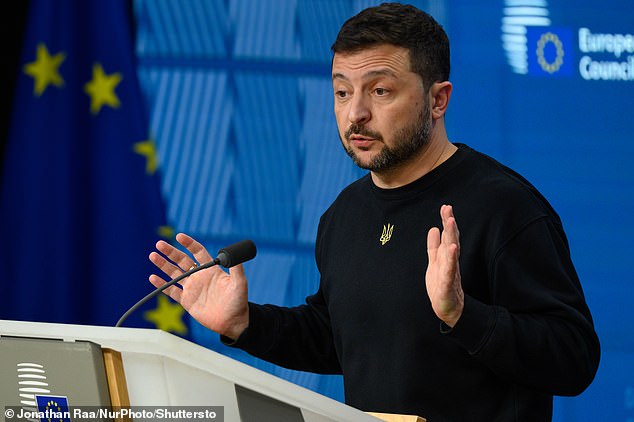
Zelensky is firmly against ceding territory to Vladimir Putin
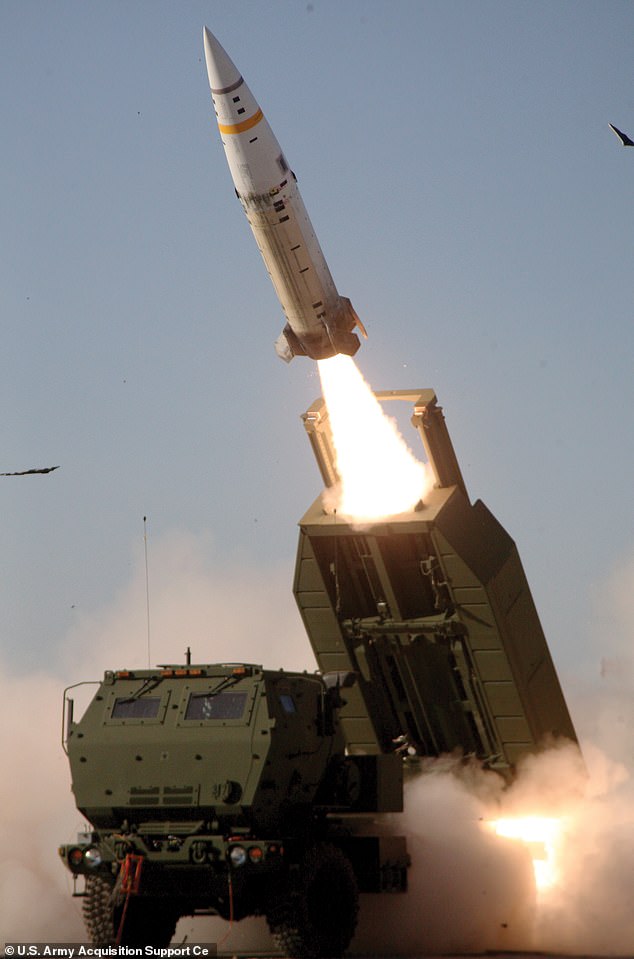
There are fears that US military aid to Ukraine will decrease if Trump becomes president
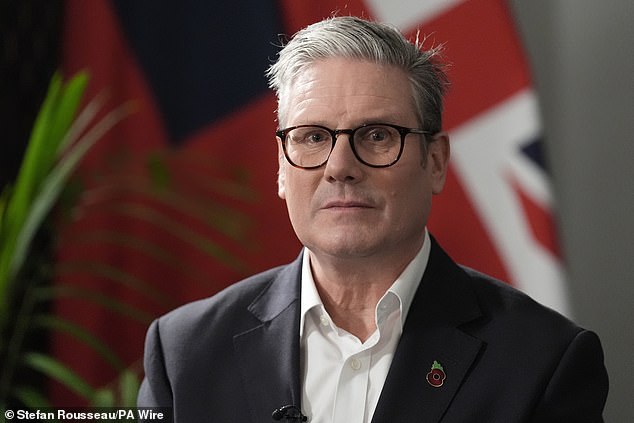
Keir Starmer congratulated Donald Trump on their first phone call since the Republican’s surprise election victory as he tries to mend ties
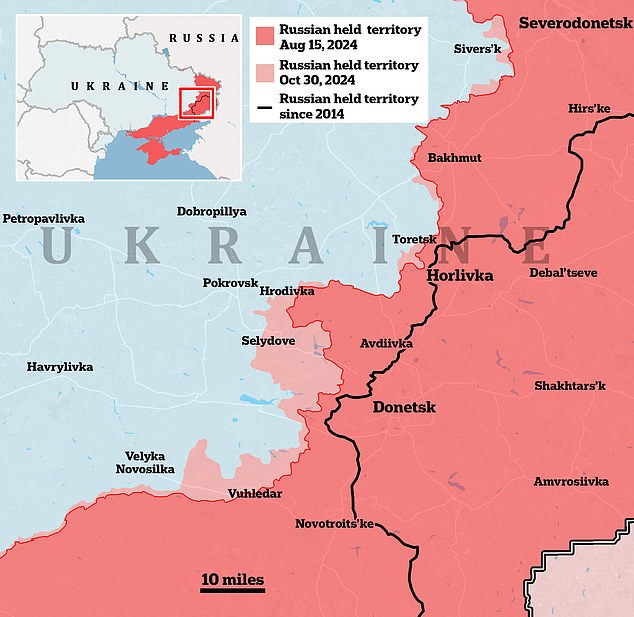
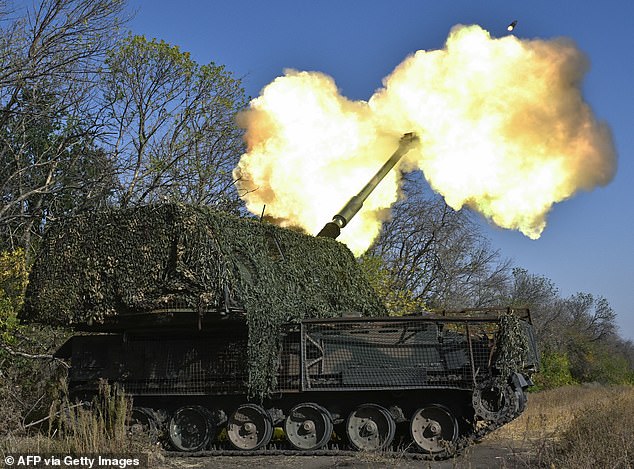
Ukrainian soldiers from the 26th Artillery Brigade fire an AHS Krab self-propelled howitzer at Russian positions near the front line in the Khasiv Yar area
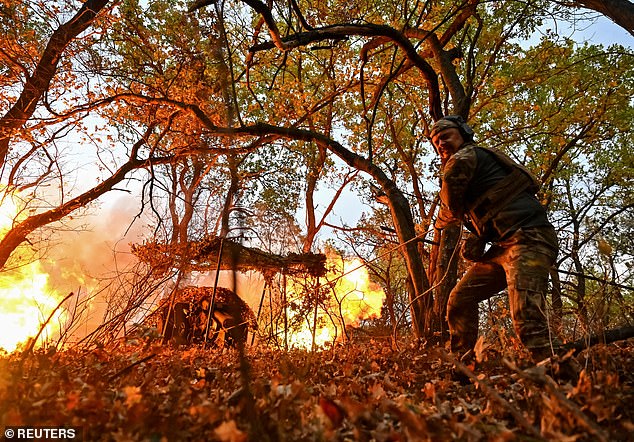
A Ukrainian military member of the Hyzhak (Predator) police special unit fires a D30 howitzer at Russian troops, amid the Russian attack on Ukraine, near the frontline city of Toretsk, Ukraine, October 25, 2024
Britain, France and Germany have already pledged to support Ukraine “for as long as necessary” and Zelensky is firmly against ceding territory to Vladimir Putin.
Yesterday, the Ukrainian leader said that making concessions to Putin would be “unacceptable for Ukraine” and “suicidal for Europe.”
With that in mind, it is difficult to see how such a plan could be pushed through other than by strong-arming Kiev and threatening to withhold much-needed US military aid.
This would dramatically undermine Washington’s relations with the whole of Europe and call into question NATO’s legitimacy.
Some analysts and politicians have warned that it could even encourage countries like China to take advantage of perceived divisions in the West and try to expand its influence in the Pacific.
Fears that Republicans would attempt to unilaterally withdraw from NATO altogether have been exaggerated, as the US Congress has passed legislation requiring a two-thirds majority vote in the Senate to approve such a move.
However, many analysts have warned that Trump is indeed likely to reduce US military aid to Ukraine and force Kiev’s European partners to bear a huge burden of maintaining an adequate arms stockpile – a move that is sure to put pressure on Zelensky would increase to consider a negotiated agreement. settlement and ceded territory.
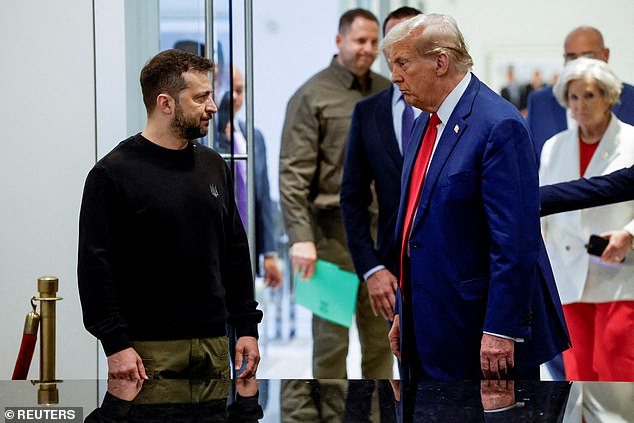
Trump and Ukrainian President Volodymyr Zelenskiy meet at Trump Tower in New York City, USA, September 27, 2024
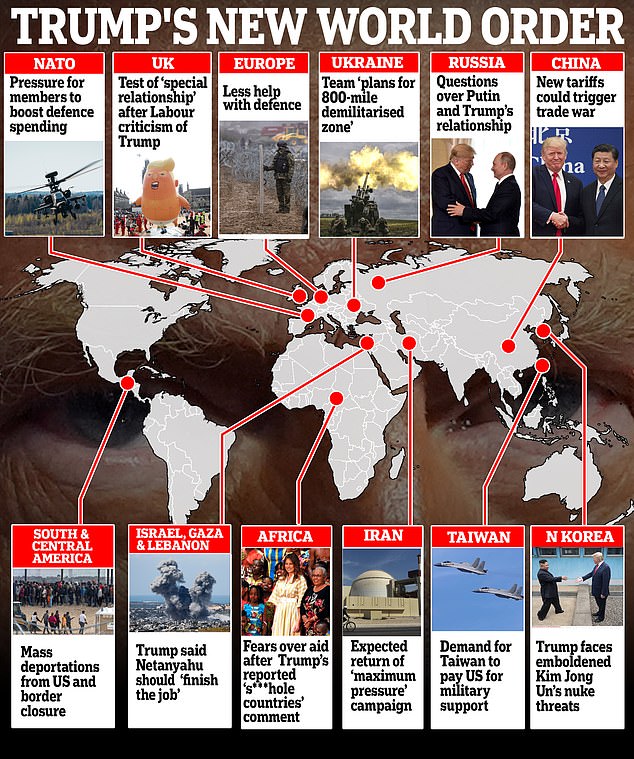
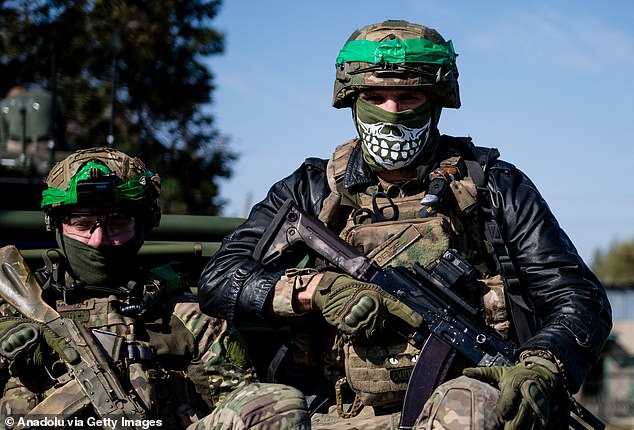
Ukrainian soldiers of the Liut Brigade sit in a pickup truck on their way back to the frontline town near Khasiv Yar in the Donetsk region, Ukraine on October 7, 2024
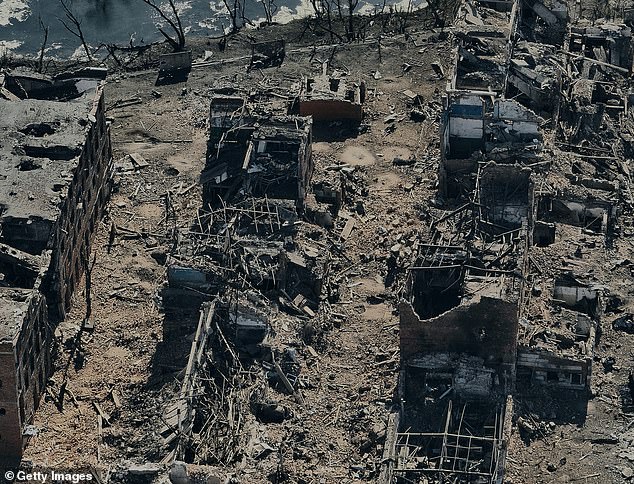
An aerial view shows the destroyed city of Vovchansk in the Kharkov region, near the border with Russia, on October 2, 2024 in Vovchansk, Ukraine
“Trump has a legitimate point that European allies have underperformed on defense and relied on Uncle Sam to protect them for too long, and this is a huge wake-up call for the West,” said Dr. Russell Foster , senior lecturer in British. and International Politics at King’s College London, told MailOnline.
“But Europe, Canada and Australasia have allowed their defense spending to stagnate for so long that they have nowhere near the industrial base and military infrastructure to help defend Ukraine and themselves from further aggression without US help.
‘We are likely to see major calls for defense spending and investment across NATO, but this will take years to build and will be hugely expensive at a time of economic stagnation. The future of Western defense now looks very bleak.”
Ed Arnold, Senior Research Fellow for European Security at the think tank Royal United Services Institute (RUSI), added: ‘The immediate crisis within Europe will be how to continue diplomatic, military and humanitarian support to Ukraine without the US.
“Whatever mechanism comes through – NATO, the EU or bilateral – it will be incredibly expensive.”
Perhaps in a sign of things to come, French President Emmanuel Macron told a meeting of European leaders this week that the continent “must not delegate our security to America forever.”
He argued that Trump would legitimately “defend the interests of the American people” and asked, “Are we ready to defend the interests of the European people?”
MailOnline has contacted the Foreign Office and No 10 Downing Street for comment on the buffer zone claims.
